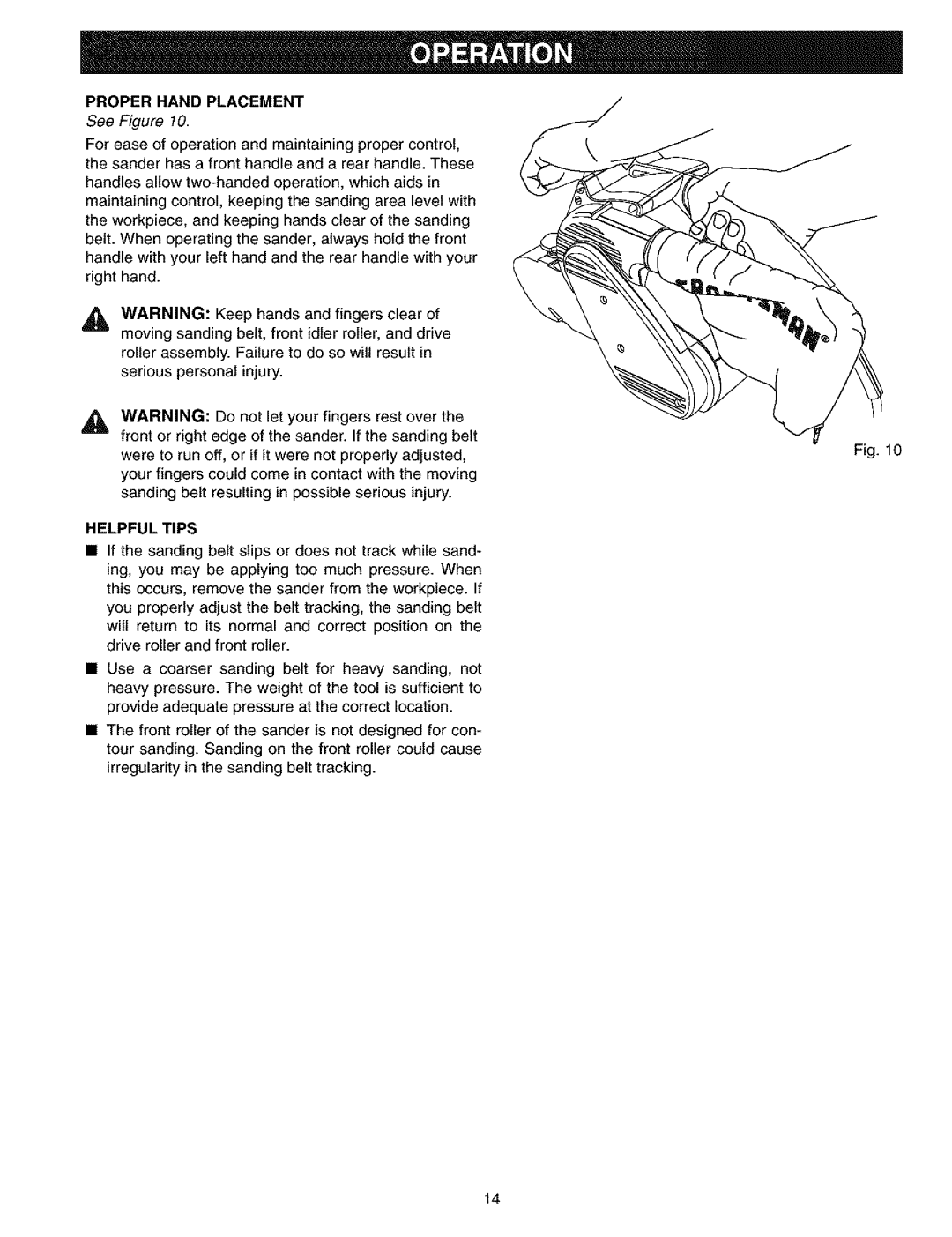
PROPER HAND PLACEMENT
See Figure 10.
For ease of operation and maintaining proper control, the sander has a front handle and a rear handle. These handles allow
,1_ WARNING: Keep hands and fingers clear of moving sanding belt, front idler roller, and drive
roller assembly. Failure to do so wilt result in serious personal injury.
_IL WARNING: Do not let your fingers rest over the |
| |||
front or right edge | of the sander. If the | sanding belt | Fig. 10 | |
were to run off, or | if it were not properly | adjusted, | ||
| ||||
your fingers could | come in contact with the moving |
| ||
sanding belt resulting in possible serious injury. |
| |||
HELPFUL TIPS
•If the sanding belt slips or does not track while sand- ing, you may be applying too much pressure. When this occurs, remove the sander from the workpiece. If you properly adjust the belt tracking, the sanding belt wilt return to its normal and correct position on the drive roller and front roller.
•Use a coarser sanding belt for heavy sanding, not heavy pressure. The weight of the tool is sufficient to provide adequate pressure at the correct location.
•The front roller of the sander is not designed for con- tour sanding. Sanding on the front roller could cause irregularity in the sanding belt tracking.
14
